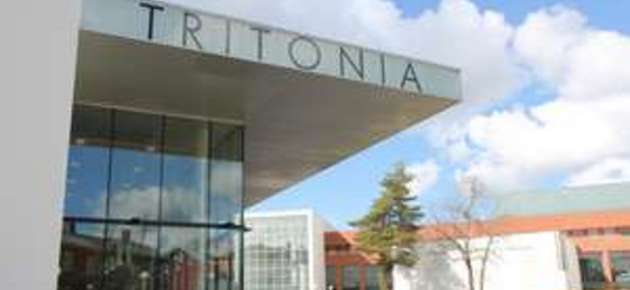Strong development and energetic investments - The University of Vaasa's year 2015

Read more: University of Vaasa Annual Report 2015.

2015 was a year of several changes for our University, characterised by major upheavals and cuts to the funding for Finnish universities.
Suvi Ronkainen was inaugurated as Rector in January and Jari Kuusisto was elected as the new Vice Rector in April.
The University invested in the energy laboratory, which was also financed by companies in the region and Tekes. The multidisciplinary Vaasa Energy Business Innovation Centre (VEBIC) is being constructed around the energy laboratory as part of a determined process to build a platform for research.
An overall international evaluation of the University's research highlighted the ability of the research groups to create knowledge of societal importance and collaborate with companies. It also demonstrated the very high quality of business-related research. The University's areas of research are of international importance. Creating scientific knowledge and ensuring that knowledge can be utilised are key features of our University's activities.
Clearly above the targets
The University of Vaasa has improved its degree programmes with a focus on ensuring that they are business- and work-oriented and that they provide the skills required for internationalisation.
All of the University's degree programmes now include studies in internationalisation and busineexpertise. The development of online teaching has been fostered by arranging courses for teachers on the subject of online pedagogy.
The University started a new master's programme in social and health management in Helsinki. The business master's programme for mature students continued in Seinäjoki. The language immersion programme organised in collaboration with Åbo Akademi entered its second year.
A total of 521 master's degrees were completed (including master's degrees in engineering). This figure is clearly above the target of 445 degrees. Foreign students completed 15 per cent of the post-graduate degrees. The University of Vaasa provides students with excellent opportunities for internationalisation. There are more than 500 exchange places.
Work orientation has been reinforced by creating new connections between the University and external organisations. The faculties have organised several events focusing on matters such as expectations of working life and the future requirements of university education. The Takuuteekkari work placement scheme for students of technology is a means of identifying internship opportunities within companies. Schemes to promote learning while working have been created for all of the degree programmes in business studies.
The number of Jufo publications has doubled in few years
The University of Vaasa's research continued successfully in 2015. The number of doctoral degrees surpassed the target for the second year running. The number of publications that have received the top classification from the Publication Forum has doubled since 2011.
In terms of the international mobility of teachers and researchers, the University has surpassed its objectives for several years. The amount of supplementary finance has improved in recent years, approaching the desired level. In the future, all of the University's faculties will work on acquiring EU funding.
In 2015, the University of Vaasa carried out an overall evaluation of its research to review the University's research activities between 2010 and 2014. According to the panel, which evaluated the entire University, the University of Vaasa has improved substantially in the last five years. The greatest strength was considered to be the societal impact of the University of Vaasa's research: the evaluation group found this to be particularly strong.
Strong societal relevance
We aim for graduates of our master's degrees and doctoral degrees to find employment in jobs related to their education and to become involved in boosting Finland's international competitiveness.
Our degree programmes identify the stakeholders who represent employers in their fields. The degree programmes also make use of feedback for development. The research groups work with partners to ensure that their research is influential.
The University is developing its partnership with Umeå University. The societal impact of education is supported by collaboration with the universities of applied sciences in the region.
The University's new fundraising campaign began at the end of 2014 and made good progress. The University recruited a contact manager in April. By the end of 2015, the University had received EUR 1.2 million in donations, while the overall target is EUR 2.5 million. The campaign will continue until the end of June 2017.
The Finnish government announced its intention to change the way in which university financing is allocated. The University decided to cut half a million euros of expenditure and review the status of the German language. In May, co-determination negotiations began in the German language unit and similar negotiations began in November covering personnel who are not in teaching positions. The co-determination negotiations have tested the resolve of the University's community and occupational well-being.
State funding increased 3,3 % in 2015
In 2015, the University of Vaasa received EUR 28.9 million in funding from the Finnish state and EUR 10.4 million in external funding. The ministry also granted EUR 1.58 million in value-added taxation compensation during the financial period. State funding increased by 3.3 per cent in comparison with 2014.
The University's budget aimed to break even. This objective was realised successfully. The surplus for the financial period was EUR 2.3 million. The surplus was due to the realisation of profits on invested assets. The assets were reinvested in accordance with the investment policy.
The University of Vaasa is solvent. The University's equity ratio was 85.4 per cent. The University's balance sheet sum was EUR 53 million.
Investment operations were profitable in 2015. The value of invested assets increased to EUR 29.7 million at the end of the year. Investments generated a return of 2.6 per cent. Equity investments generated the greatest return: 8.4 per cent. Fixed-income investments returned -1.3 per cent, while alternative investments returned -0.2 per cent.